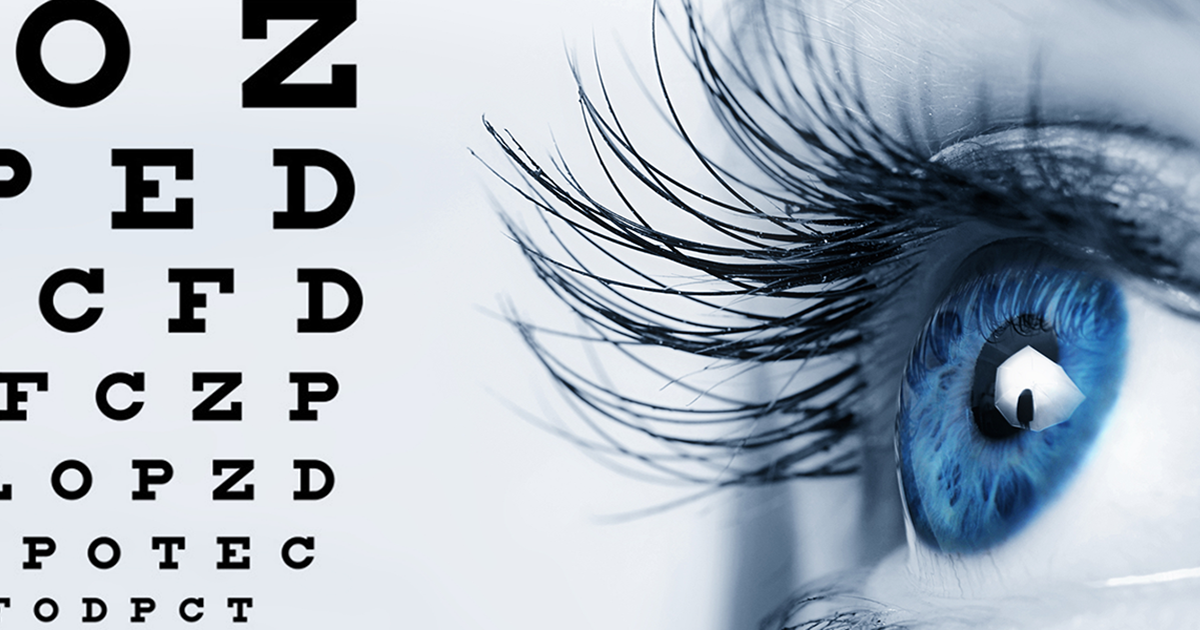Best Refractive Surgeries in AL: State-of-the-Art Eye Treatment
Best Refractive Surgeries in AL: State-of-the-Art Eye Treatment
Blog Article
Comprehending the Various Eye Issues Treated by Specialized Eye Treatment Professionals
In the world of eye care, specialized experts play an important duty in diagnosing and treating a large array of eye conditions. As we get started on this exploration of the different eye problems addressed by specialized eye care specialists, it becomes apparent that the complex internet of eye health holds a myriad of interesting understandings waiting to be revealed.
Common Refractive Errors
Refractive mistakes prevail visual conditions created by a blemish in the eye's capacity to correctly focus light, leading to obscured vision. The most prevalent sorts of refractive errors include nearsightedness (nearsightedness), hyperopia (farsightedness), astigmatism, and presbyopia. Nearsightedness takes place when the eyeball is also lengthy or the cornea is also bent, creating remote challenge show up fuzzy. Hyperopia, on the various other hand, happens when the eyeball is too brief or the cornea is also level, leading to neighboring things running out emphasis. Astigmatism is identified by an irregularly designed cornea, leading to altered or blurred vision in any way distances. Presbyopia is an age-related problem where the lens sheds its adaptability, making it tough to concentrate on close items.
These refractive mistakes can be fixed via different techniques, including spectacles, get in touch with lenses, or refractive surgery. Eye care professionals play a crucial function in detecting and taking care of refractive errors to help individuals attain more clear vision and enhance their high quality of life.
Age-Related Eye Problems
As people age, their eyes may be susceptible to a selection of conditions beyond refractive errors that can impact their vision and total ocular health and wellness. Age-related eye conditions prevail and can considerably influence the high quality of life for older grownups. One of one of the most prevalent age-related eye conditions is age-related macular deterioration (AMD), a disease that creates central vision loss and can make activities like analysis and driving tough. refractive surgeries in al. Cataracts, another typical problem among older individuals, trigger clouding of the eye's natural lens, bring about blurred vision. Glaucoma, defined by damages to the optic nerve, is additionally much more common with age and can cause peripheral vision loss or blindness if left unattended. Furthermore, presbyopia, a problem where the eye's lens sheds flexibility, is a natural component of aging and leads to difficulty concentrating on close items. Normal eye tests with specialized eye care experts are critical for very early detection and management of these age-related eye conditions to protect vision and preserve eye wellness as individuals get older.
Vision-Threatening Illness
Vision-threatening illness include a variety of major ocular problems that have the possible to significantly influence a person's vision and overall aesthetic feature. These illness position a risk of long-term vision loss otherwise without delay detected and dealt with by specialized eye care professionals. Some usual vision-threatening illness include glaucoma, diabetic person retinopathy, check that age-related macular deterioration (AMD), and retinal detachment.
Glaucoma is a group of eye problems that harm the optic nerve, frequently due to high intraocular stress, causing peripheral vision loss and possible loss of sight if left neglected. Diabetic retinopathy is an issue of diabetic issues that affects capillary in the retina, causing vision problems or blindness. AMD is a progressive problem affecting the macula, bring about central vision loss. Retinal detachment takes place when the retina separates from its underlying cells, leading to unexpected vision loss that requires instant clinical interest (refractive surgeries in al).
Early detection, normal eye exams, and prompt treatment are important in taking care of vision-threatening illness to protect sight and preserve lifestyle. Specialized eye care experts play an essential role in diagnosing, dealing with, and taking care of these conditions to stop irreversible vision loss.

Corneal Conditions
Corneal disorders incorporate a range of conditions that influence the clear front part of the eye, known as the cornea. These problems can result in pain, aesthetic disturbances, and in serious cases, vision loss. click this One typical corneal disorder is keratoconus, where the cornea thins and protrudes outside right into a cone shape, causing astigmatism and obscured vision. Corneal dystrophies, such as Fuchs' dystrophy, lead to steady vision loss because of abnormal down payments in the cornea. Corneal abrasions, typically caused by injury or foreign objects, can lead to discomfort, inflammation, and sensitivity to light. In addition, infections like keratitis can irritate the cornea, potentially resulting in scarring and vision impairment if not quickly treated. Treatment for corneal problems differs depending on the particular problem however might consist of drugs, call lenses, or in extreme situations, corneal transplants. Routine eye tests are important for very early discovery and monitoring of corneal conditions to preserve vision and eye health.
Neurological Eye Problems
Neurological eye conditions involve conditions that impact the connection between the eyes and the brain, influencing visual processing and overall eye function. These conditions can show up in numerous means, influencing vision, eye activities, and also the control in between the eyes. One usual neurological eye problem is optic neuritis, defined by inflammation of the optic nerve causing vision loss, shade desaturation, and discomfort with eye activity.
One more considerable condition is nystagmus, where the eyes make repetitive, uncontrolled movements, influencing aesthetic skill and depth perception. In addition, conditions like amblyopia, typically referred to as "lazy eye," arise from uncommon aesthetic growth in very early youth, bring about decreased vision in one eye.
Neurological eye conditions require customized treatment from experts like neuro-ophthalmologists who have know-how in both neurology and ophthalmology. Medical diagnosis typically involves a comprehensive eye exam, imaging research studies, and collaboration with specialists to attend to the underlying neurological problems affecting the aesthetic system. Treatment strategies can include drug, vision treatment, or in severe instances, surgical treatments to handle these complex problems effectively.

Conclusion
In conclusion, specialized eye care specialists this article deal with a vast variety of eye conditions, including common refractive mistakes, age-related eye conditions, vision-threatening diseases, corneal problems, and neurological eye problems - refractive surgeries in al. By comprehending these various conditions and looking for proper treatment from eye care professionals, individuals can maintain ideal eye health and vision. It is necessary to prioritize regular eye exams and adhere to suggested treatment strategies to protect and protect one's vision for the future
Report this page